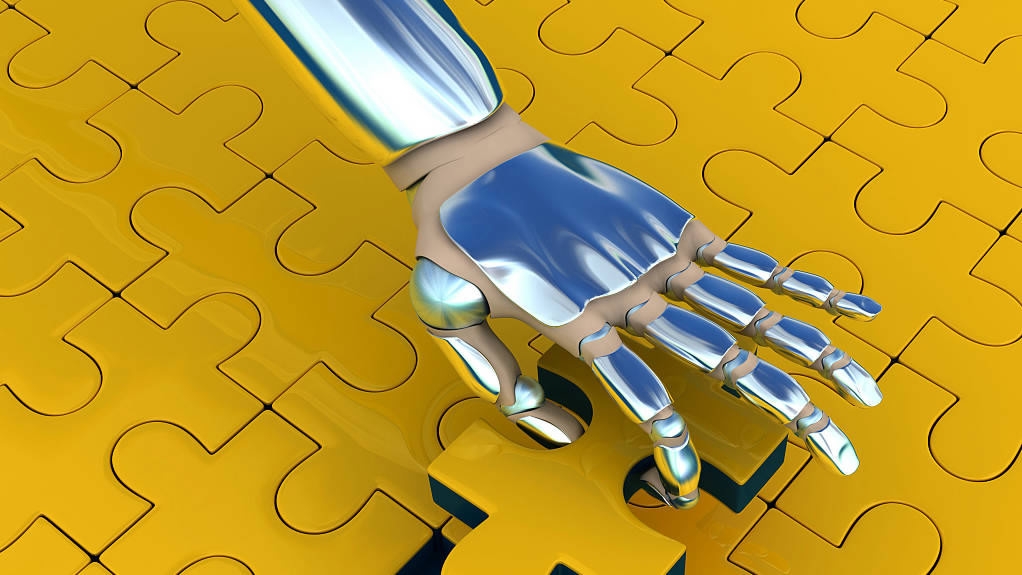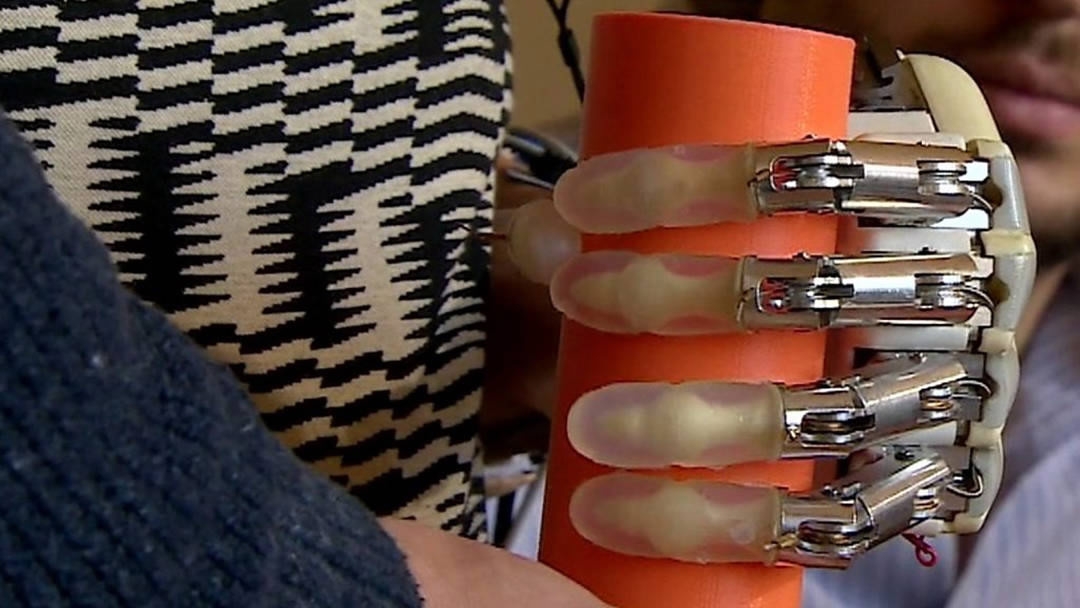
Robot
18:20, 07-Jan-2018
Italian woman fitted with first bionic hand with sense of touch

An Italian woman became the first patient in the world to be fitted with a bionic hand with a sense of touch, local media reported Thursday.
The bionic hand was assembled at the Sant'Anna School of Advanced Studies in the Tuscan city of Pisa, and the operation to implant the hand was carried out at Rome's Policlinico Gemelli Hospital in June 2016, Italian news agency ANSA reported.
The recipient, Almerina Mascarello, is a woman in her 50s and a resident of the northern Veneto region. She lost her left hand in a factory accident when she was in her 30s.
The operation was publicized on Thursday as it was deemed successful and is being published in international scientific journals.
Mascarello's bionic hand is "an improved version of a bionic hand implanted on a Danish man in 2014," Professor Silvestro Micera, the bioengineer whose team assembled the hand, told ANSA news agency.

The bionic hand comes with an electronic system which can translate movements into electrical signals that gives instructions to the hand. / Photo via BBC
The bionic hand comes with an electronic system which can translate movements into electrical signals that gives instructions to the hand. / Photo via BBC
Micera, who also directs the Translational Neural Engineering Laboratory at the Federal Polytechnic School in Lausanne, Switzerland, is a leading researcher in the field of hybrid neuroprosthetic systems, or the interfacing of the human nervous system with artificial systems, according to the Sant'Anna website.
The bionic prosthesis comes with an electronic system, which registers movements through electrodes implanted in the wearer's muscles, then translates them into electrical signals functioning as commands to the artificial hand.
The system also transforms information recorded by sensors on the artificial hand into signals that get sent to the wearer's nerves, and therefore into sensory information.
The prosthesis is bulky and expensive, with the whole operation running into the "millions of euros," according to local media.
However, this is a first step towards a high-tech future in which robotics and prostheses will merge seamlessly with the human body, bringing relief to the disabled.
"The next step is completely implantable technology," Michera told Sky TG24 private broadcaster in an interview.
8137km
Source(s): Xinhua News Agency

SITEMAP
Copyright © 2018 CGTN. Beijing ICP prepared NO.16065310-3
Copyright © 2018 CGTN. Beijing ICP prepared NO.16065310-3